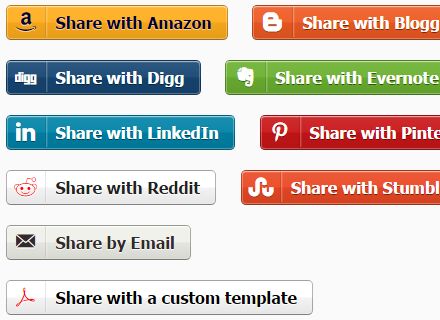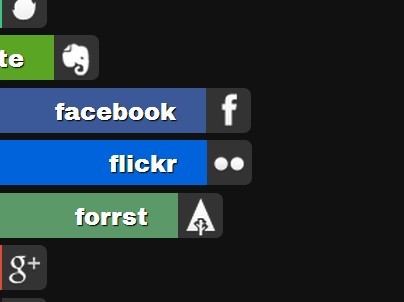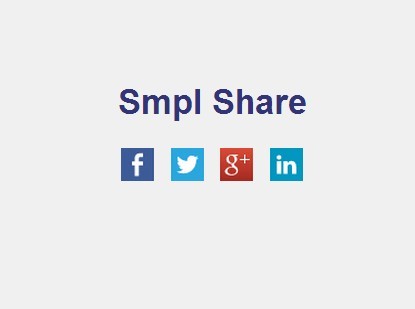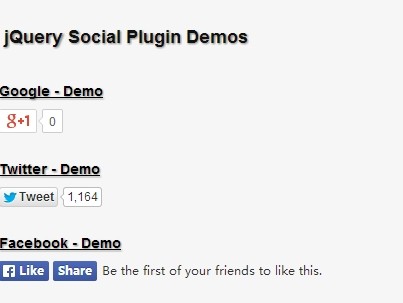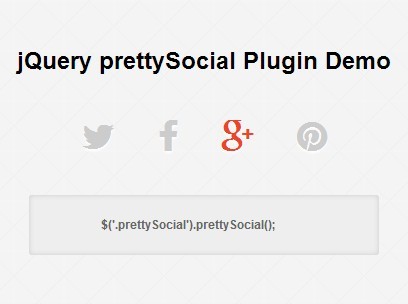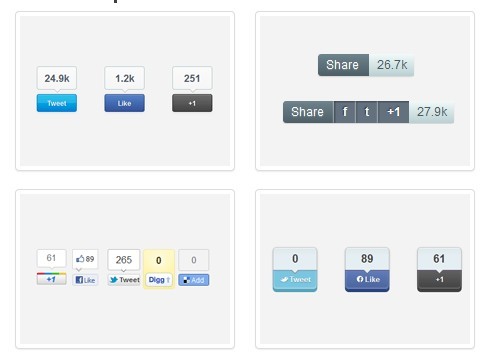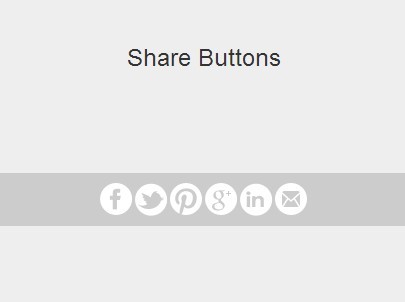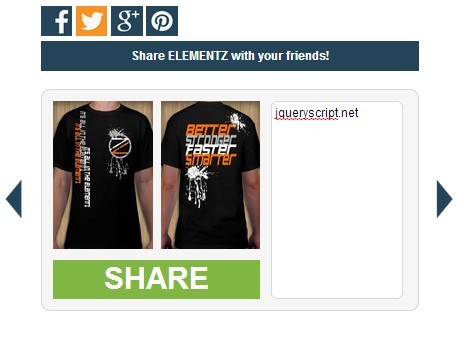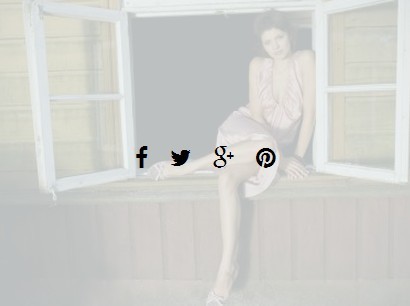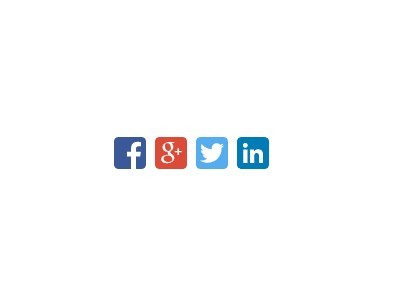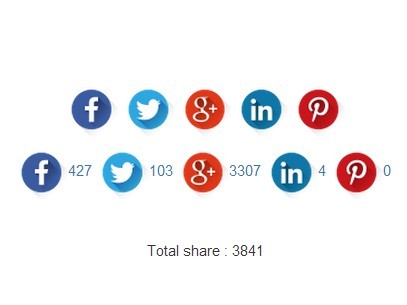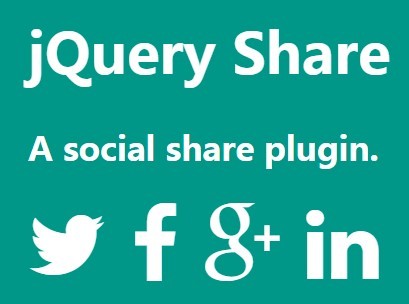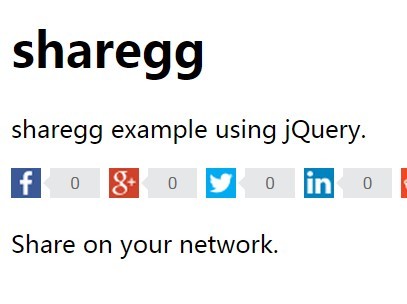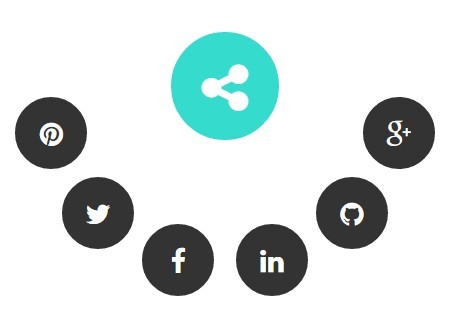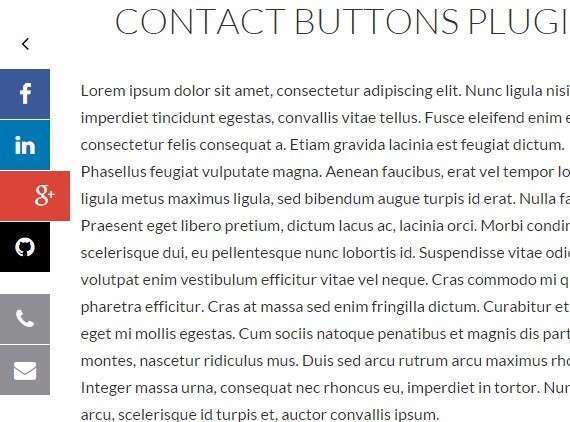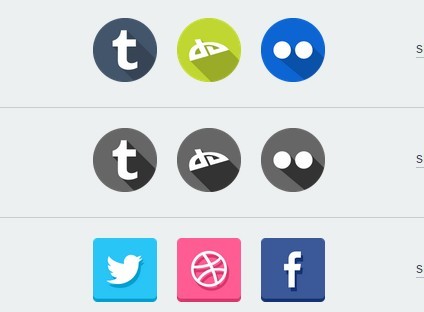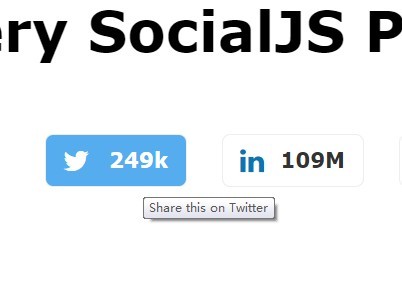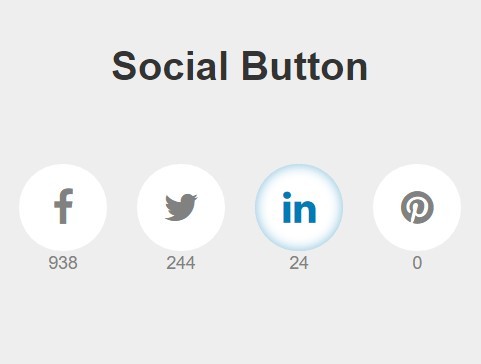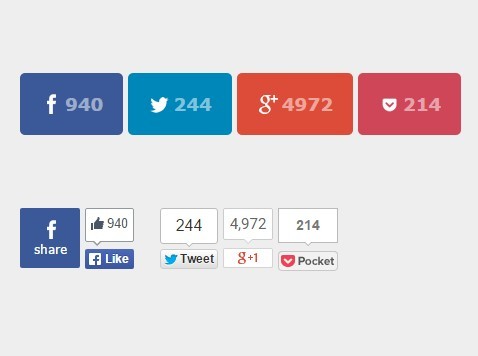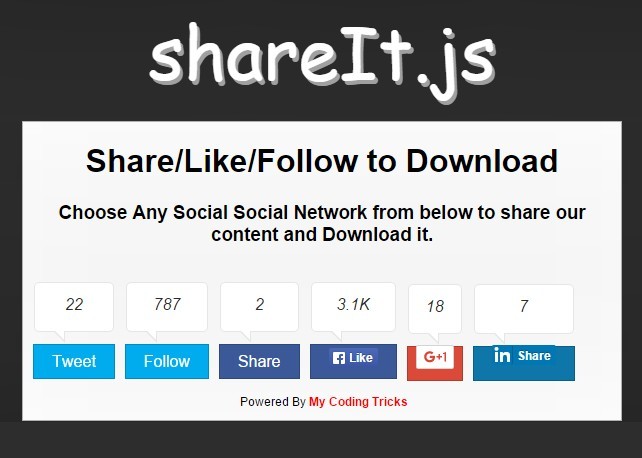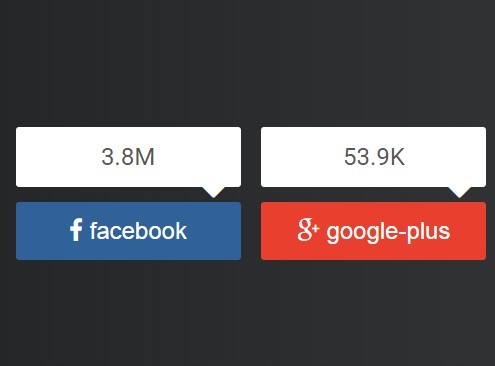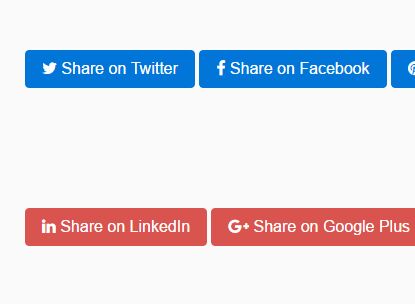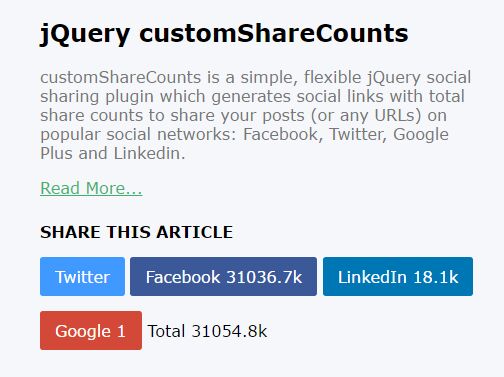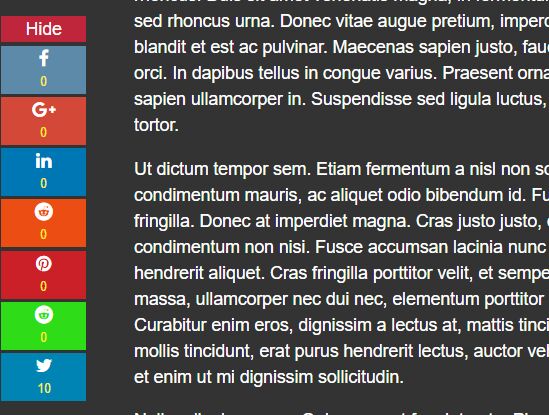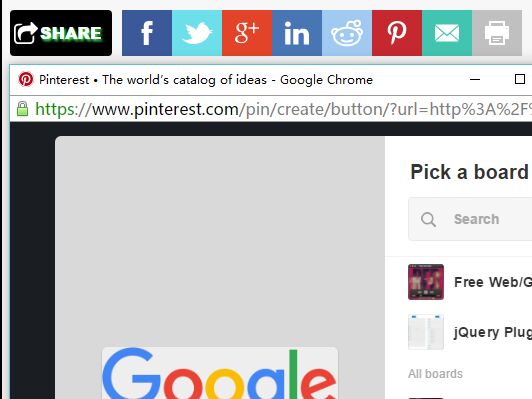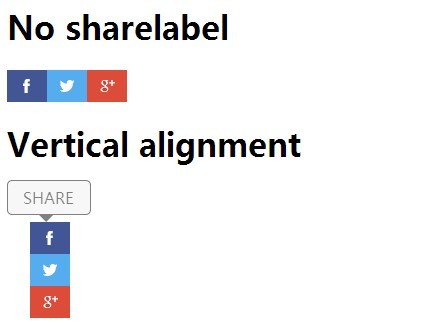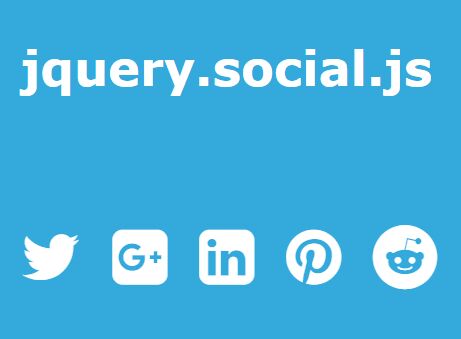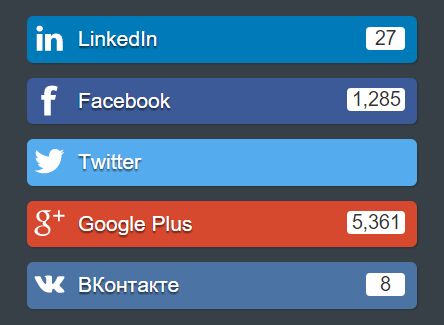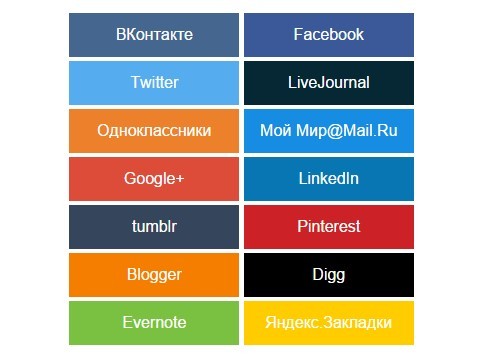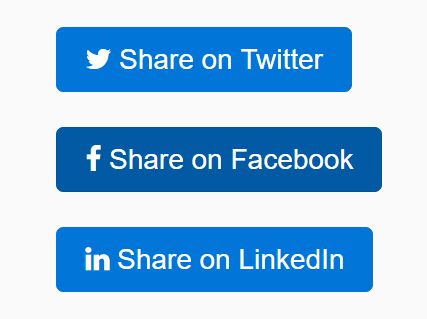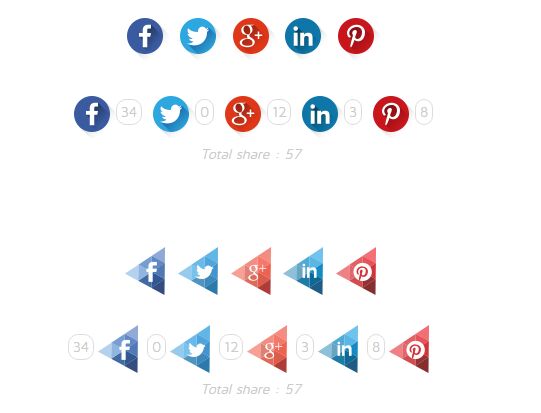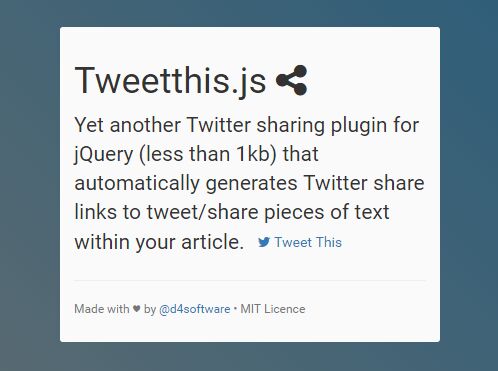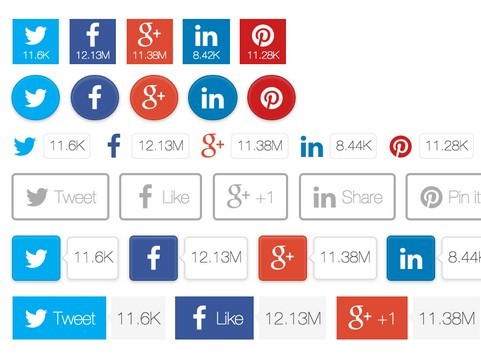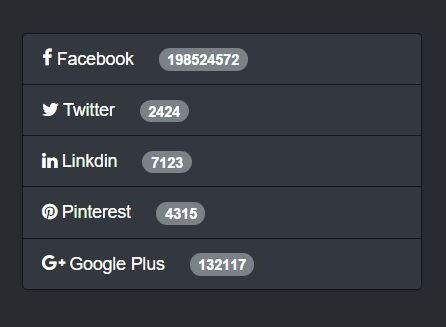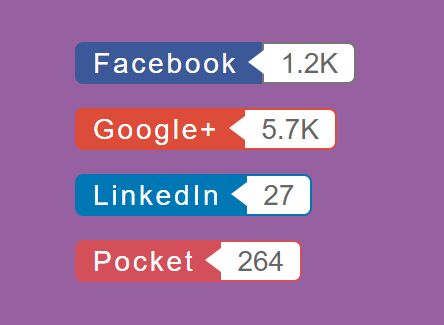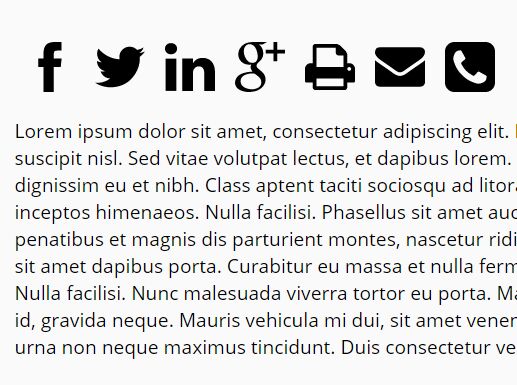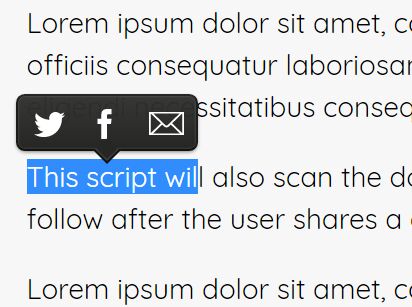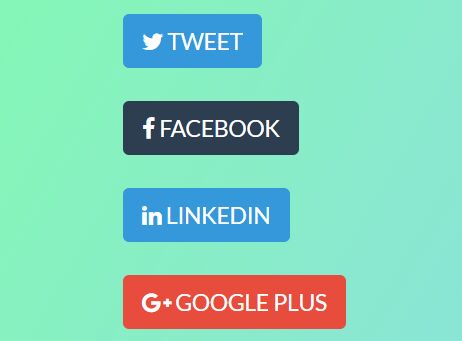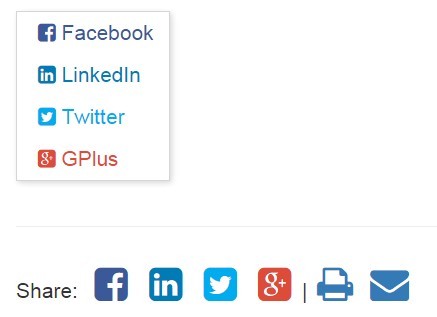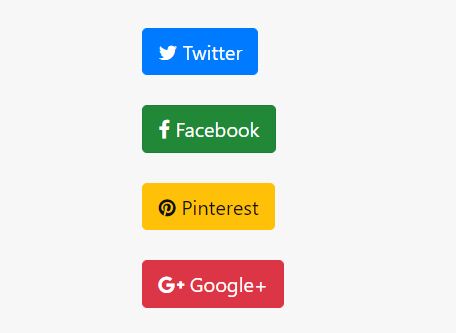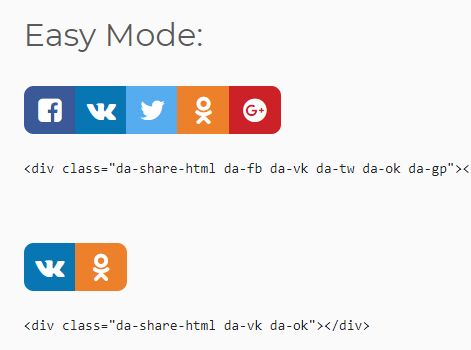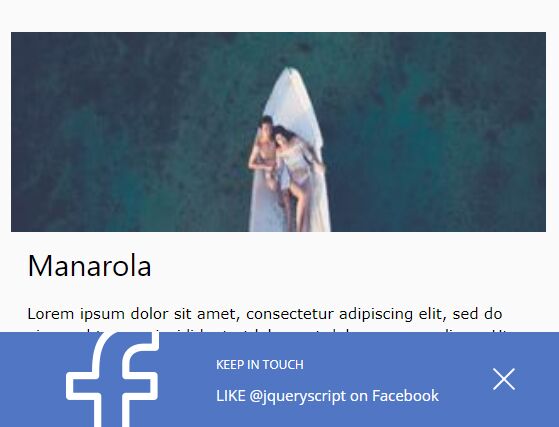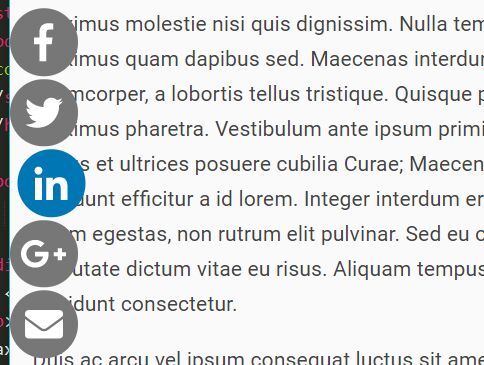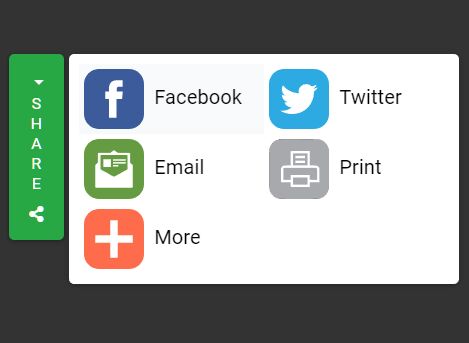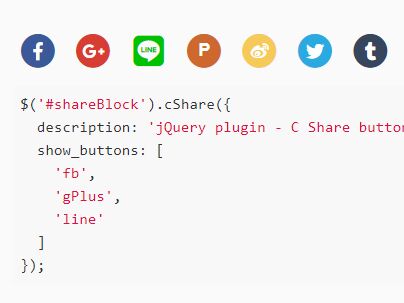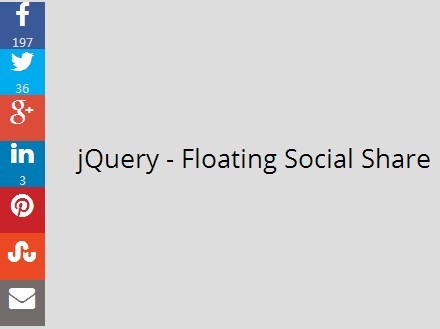jquery-socialshare
A minimalist social sharing jQuery plugin, use any styles, themes, buttons or links. Includes templates and callbacks for popup open and close events.
View the Online Demo, it uses the Zocial CSS social buttons and Bootstrap presentation purposes.
Versions are incremented according to semver.
Requirements
- jQuery 1.9.1+
Why?
Because I always found it tricky to find the right social sharing plugin for the bespoke websites I develop at my daily job @PMC-Digital. The existing plugins either relied on their own themes, styling, were hard to customize or heavy!
I also wanted to get started with Grunt, Bower and the possibilities of developing with these tools.
Installation
You can install this package either from a release or bower.
Release
Download a compressed *-dist.zip file from the Releases Tab
Bower
bower install jquery-socialshare --saveUsage
Include a <script> on your html file:
<script src="/your/path/to/jquery-socialshare.min.js"></script>or include it via CDN:
<script src="https://cdn.jsdelivr.net/npm/jquery-socialshare/dist/js/jquery-socialshare.min.js"></script>Configure your links/buttons with a class for the corresponding template:
<div class="social-container"> <a href="#" class="facebook" aria-label="Share this page with Facebook" role="button">Share on Facebook</a> <button class="twitter" aria-label="Share this page with Twitter">Share on Twitter</button> </div>Call the jqss plugin via javascript:
$(function () { $(".social-container a, .social-container button").jqss(); });Templates
The plugin is packaged with templates for the following social networks: amazon, blogger, buffer, delicious, digg, evernote, pinterest, pocket, quora, reddit, tumbleupon, tumblr, email, linkedin, facebook, twitter and googleplus
You can add additional templates before initializing the plugin:
$(function () { $.fn.jqss.templates['custom'] = 'https://custom.com?u={{URL}}&t={{TITLE}}'; $(".social-container a, .social-container button").jqss(); });It supports options with the all uppercase option name in the {{OPTIONNAME}} markup, the example above is using {{URL}} and {{TITLE}}.
Options
Most options can be provided via data-attributes on each element. An option can be converted to a data-attribute by taking its name, replacing each uppercase letter with its lowercase equivalent preceded by a dash, and prepending data-jqss- to the result. For example, usePopup would be data-jqss-use-popup, template would be data-jqss-template, and ariaLabelPrefix would be data-jqss-aria-label-prefix.
Options set via data-attributes override any options set via javascript when initializing the plugin. Most options are global and would probably be set via javascript. The most common option to set with data-attribute on each element would be template in case you don't already specify it via a class that matches a template name.
usePopup
Boolean. Default: true
Whether or not a popup is used or a new window is opened instead.
popupWidth
Number. Default: 600
The popup's width.
popupHeight
Number. Default: 450
The popup's height.
ariaLabelPrefix
String. Default: Share with
The prefix applied to the element when usign the aria-label defined for the template.
url
String. Default: location.href
The url being shared that can be used as {{URL}} in a template.
siteUrl
String. Default: location.origin
The site url that can be used as {{SITEURL}} in a template.
source
String. Default: First value from meta tag(s) [name=site], [name=Site] from the document's head, if none is found the document.title.
The source that can be used as {{SOURCE}} in a template.
title
String. Default: First value from meta tag(s) [name=title], [name=Title] from the document's head, if none is found the document.title.
The title that can be used as {{TITLE}} in a template.
description
String. Default: First value from meta tag(s) [name=description], [name=Description], meta[property='og:description'], meta[property='og:Description'] from the document's head, if none is found the document.title.
The description that can be used as {{DESCRIPTION}} in a template.
image
String. Default: First value from meta tag(s) meta[name=image], meta[name=Image], meta[property='og:image'], meta[property='og:Image'] from the document's head, if none is found the document's img:first.
The image url that can be used as {{IMAGE}} in a template.
price
String. Default: First value from meta tag(s) meta[property='og:product:price:amount'] from the document's head.
The price that can be used as {{PRICE}} in a template.
template
String. Default: null.
The template name to be used. This option is ignored if set via the plugin's initialization, however you can define it as data-attribute on each element if not making use of the class to determine the template to use. The email template type will not use a popup and the onOpen and onClose callbacks won't be called.
imageSelector
String. Default: null.
A custom jQuery selector to be used instead of the default image option. Supports more than one image concatenating them with ||.
priceSelector
String. Default: null.
A custom jQuery selector to be used instead of the default price option. Only supports one element's text value.
emailSubject
String. Default: I\'m sharing "{{TITLE}}" with you.
The subject to be used with the email mailto template. It supports all the options with the {{****}} markup.
emailBody
String. Default: Because I think you\'ll find it very interesting.%0A%0A"{{DESCRIPTION}}"%0A%0AClick this link {{URL}} for more info..
The body to be used with the email mailto template. It supports all the options with the {{****}} markup.
twitterSource
String. Default: First value from meta tag(s) [name='twitter:creator'], [name='twitter:site'] from the document's head.
The source to be used with the twitter template.
onOpen
Function. Default: empty
Callback method that is triggered when the popup or window opens, except for the email template. Sends the plugin's instance and element.
function( instance, element ) onClose
Function. Default: empty
Callback method that is triggered when the popup or window closes, except for the email template. Sends the plugin's instance and element.
function( instance, element ) Methods
Methods are accessed via the plugin's name jqss e.g. $('.social-container a.facebook').jqss('open')
open(callsback)
Boolean callsback. Default: false
Method to open the element share template. The argument callsback determines whether the onOpen and onClose callback's should be called.
$('.social-container a.facebook').jqss('open'); close(callsback)
Boolean callsback. Default: false
Method to close the element share template if it is already open. The argument callsback determines whether the onClose callback should be called.
$('.social-container a.facebook').jqss('close'); 